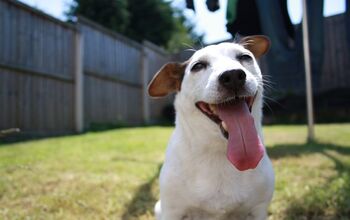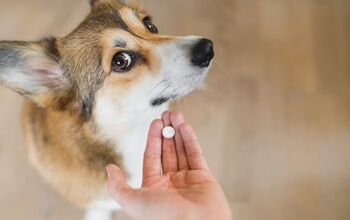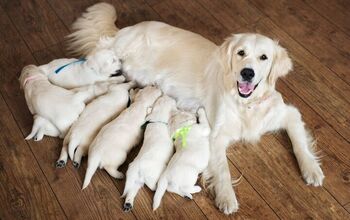Is There A Difference Between Natural Vs Organic Dog Food?

When it comes to choosing a food for your dog, you may easily be overwhelmed by the sheer number of options you have. Commercial dog food companies use marketing tactics and buzzwords like “natural” and “holistic” to put their own product above the competition’s – but what do these words really mean? In this article you will learn how to tell the difference between natural and organic dog food so you can make the choice that is right for your dog.
What the Terms Mean
One thing you have to realize about commercial dog food is that it is not as heavily regulated as human food by the FDA and USDA. For example, there is no official definition set forth by the FDA for terms like “holistic”. There is, however, a definition for the terms “natural” and “organic” as set forth by the American Association of Feed Control Officials (AAFCO). According to AAFCO, natural food is “derived solely from plant, animal or mined sources, either in its unprocessed state or having been subjected to physical processing, heat processing, rendering, purification extraction, hydrolysis, enzymolysis or fermentation, but not having been produced by or subject to a chemically synthetic process and not containing any additives or processing aids that are chemically synthetic except in amounts as might occur unavoidably in good manufacturing practices.”
The term “organic” is more heavily regulated and its definition is set forth by the USDA’s National Organic Program. According to the USDA, in order to be certified as organic, “plant ingredients in pet food must be grown without pesticides, artificial fertilizers, genetic modification, irradiation or sewage sludge… animal ingredients must come from animals raised on organic feed, given access to the outdoors and not treated with antibiotics or hormones.” Given these definitions alone, it should be clear to you that the quality of organic food is more heavily regulated than that of “natural food”.
Related: Are You In The Know About Organic Dog Food?
Deciphering the Definitions
Now that you know the definitions of the terms “natural” and “organic” we can begin to decipher what they actually mean in terms of commercial dog food. If you look closely at the definition for “natural” food, you will see that the only true requirements are that the ingredients originate from natural sources – the ingredients can still go through any of half a dozen forms of processing and still be considered “natural”. The only exception is for chemical forms of processing. Organic foods, on the other hand, must adhere to strict rules regarding the origins of the ingredients as well as how they are grown or raised. Organic food companies undergo rigid inspections to ensure that they continue to meet the requirements set forth by the USDA.
Related: How is Commercial Dog Food Regulated?
Choosing Between the Two
When it comes to selecting a food for your dog, there are many factors to consider. If you truly want what is best for your dog, however, you can’t rely on marketing tactics that companies use to promote their products. You have to do a little bit of basic research yourself in order to understand what those terms mean. Using the definitions provided above, you can see how a product that is labeled “natural” may not necessarily be the best choice for your dog – just because the ingredients are all natural doesn’t meant that the end product is healthy.
In the end, the choice is up to you but hopefully you have learned enough to know that you have to dig a little deeper than just reading the label to determine whether a dog food is healthy or not. Take the time to go through the ingredients list and don’t forget to look for the AAFCO statement of nutritional adequacy which states that the food meets the nutritional needs for dogs.

Kate Barrington is the loving owner of two cats (Bagel and Munchkin) and a noisy herd of guinea pigs. Having grown up with golden retrievers, Kate has a great deal of experience with dogs but labels herself a lover of all pets. Having received a Bachelor's degree in English, Kate has combined her love for pets and her passion for writing to create her own freelance writing business, specializing in the pet niche.
More by Kate Barrington























